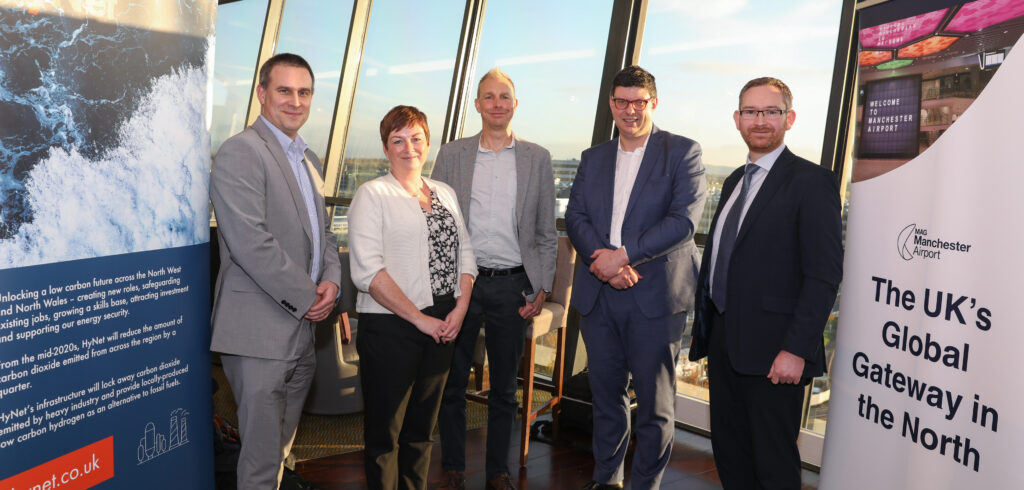The UK’s Manchester Airport is set to become the country’s first airport with a direct supply of low-carbon hydrogen fuel following a partnership with HyNet – a government-backed industrial decarbonization project.
The airport signed a Memorandum of Understanding (MoU) with the two founding partners of HyNet – Progressive Energy, which develops projects to decarbonize the energy sector, and Cadent, which will build and operate HyNet’s hydrogen pipeline network.
Hydrogen technology will play a key role in decarbonizing the aviation sector, with hydrogen-powered aircraft expected to come into operation from the mid-2030s for short-haul journeys. A research project conducted by FlyZero involving Manchester Airports Group (MAG) estimated that the demand for liquid hydrogen at an airport the size of Manchester could be 6.5 million liters per day by 2050.
As a result of the MoU, the partners will work together to assess the future demand for hydrogen for aviation and explore the feasibility to connect Manchester Airport to HyNet’s regional network.
With this connection, the airport aims to be the first to establish a direct pipeline of hydrogen, to supply any of its 60+ airlines with the sustainable fuel at the earliest opportunity, forming a key component of wider plans to decarbonize flying.
Chris Woodroofe, managing director at Manchester Airport, said, “This announcement demonstrates the meaningful action we are taking to ensure we can deliver a carbon-free future for the aviation industry. The partnership between Manchester Airport and HyNet is a significant step forward for the future use of hydrogen across the Northwest, building a more sustainable future for the region.
“By securing a direct supply of hydrogen for our airport, our 60 airlines will be able to make use of this exciting and groundbreaking technology as soon as possible. The use of hydrogen will make a significant contribution to the UK aviation sector’s decarbonization efforts and supports industry partners in reaching net zero.”
Graham Stuart, the UK’s energy and climate change minister, said, “Set to be the new super-fuel of the future, hydrogen will be essential in powering UK industries, including the aviation sector, as we move toward ending our dependency on fossil fuels. This new partnership is an exciting step that will help put the Northwest at the heart of efforts to make the UK a world-leading hydrogen economy.”
As part of MAG, Manchester Airport has a target to make its own operations net zero carbon by 2038, 12 years ahead of the UK national target and two years ahead of the target set for UK airports in the government’s Jet Zero Strategy. The use of hydrogen fuel technology will play a pivotal role in aviation decarbonization, alongside other levers including airspace modernization and the use of sustainable aviation fuel (SAF).
This announcement on hydrogen technology comes a year after MAG announced its partnership with Fulcrum BioEnergy, which aims to make Manchester Airport the first in the UK to have a direct supply of SAF from the mid-2020s.


